Filter by
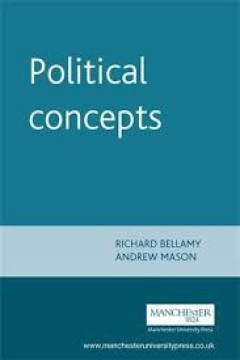
Political concepts
Written by a powerful international team of theorists, this book offers a sophisticated analysis of the central political concepts in the light of recent debates in political theory. All political argument employs political concepts. They provide the building blocks needed to construct a case for or against a given political position. To address such issues as whether or not development aid is …
- Edition
- -
- ISBN/ISSN
- 0719059097
- Collation
- viii, 245 p. ; 24 cm.
- Series Title
- -
- Call Number
- 320 BEL p
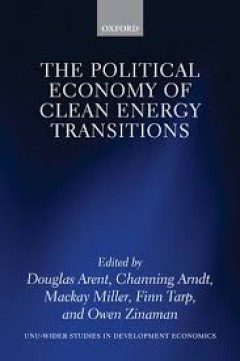
Political economy of clean energy transitions
The 21st Conference of the Parties (CoP21) to the United Nations Framework Convention on Climate Change (UNFCCC) shifted the nature of the political economy challenge associated with achieving a global emissions trajectory that is consistent with a climate. The shifts generated by CoP21 place country decision-making and country policies at centre stage. Under moderately optimistic assumptions c…
- Edition
- -
- ISBN/ISSN
- 9780198802242
- Collation
- xxxvi, 594 pages : illustrations ; 24 cm.
- Series Title
- -
- Call Number
- 324.7 ARE p
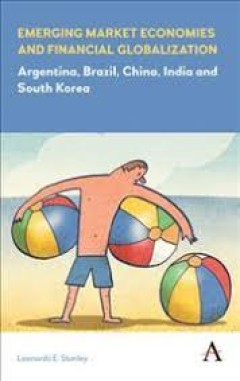
Emerging market economies and financial globalization: argentina, brazil, chi…
In the past, foreign shocks arrived to national economies mainly through trade channels, and transmissions of such shocks took time to come into effect. However, after capital globalization, shocks spread to markets almost immediately. Despite the increasing macroeconomic dangers that the situation generated at emerging markets in the South, nobody at the North was ready to acknowledge the pro-…
- Edition
- -
- ISBN/ISSN
- 9781783086740
- Collation
- pages cm.
- Series Title
- Anthem frontiers of global political economy
- Call Number
- 330 STA e
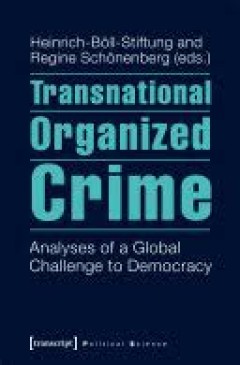
Transnational organized crime: analyses of a global challenge to democracy
Transnational organized crime interferes with the everyday lives of more and more people - and represents a serious threat to democracy. By now, organized crime has become an inherent feature of economic globalization, and the fine line between the legal and illegal operation of business networks is blurred. Additionally, few experts could claim to have comprehensive knowledge and understanding…
- Edition
- -
- ISBN/ISSN
- 9783839424957
- Collation
- -
- Series Title
- -
- Call Number
- 320.06 TRA t

Pharmacovigilance in the European Union : practical implementation across mem…
The book presents the results of an in-depth comparative study assessing the implementation of the EU Pharmacovigilance Directive in six EU Member States. By going beyond legal transposition and instead focusing on practical implementation, this study aims to close a gap in EU compliance research. Based on qualitative interviews with relevant actors in Germany, Poland, Portugal, France, Finland…
- Edition
- -
- ISBN/ISSN
- 9783658172763
- Collation
- xiv, 124p. : ill.
- Series Title
- -
- Call Number
- 615.7042 KAE p

Rising powers and peacebuilding : breaking the mold?
This edited volume examines the policies and practices of rising powers on peacebuilding. It analyzes how and why their approaches differ from those of traditional donors and multilateral institutions. The policies of the rising powers towards peacebuilding may significantly influence how the UN and others undertake peacebuilding in the future. This book is an invaluable resource for practition…
- Edition
- -
- ISBN/ISSN
- 9783319606217
- Collation
- xv, 276p. : ill.
- Series Title
- -
- Call Number
- 327.172 RIS r

Current research in bilingualism and bilingual education
This book covers research topics in bilingual education, language policies, language contact, identity of bilingual speakers, early bilingualism, heritage languages, and more, and provides an overview of current theory, research and practice in the field of bilingualism. Each chapter is written by a specialist in the field. Part I focuses on the numerous and heterogeneous relations between lang…
- Edition
- -
- ISBN/ISSN
- 9783319923963
- Collation
- xix, 241 p.; 22 cm.
- Series Title
- ultilingual Education; Vol. 26
- Call Number
- 404.2 CUR c
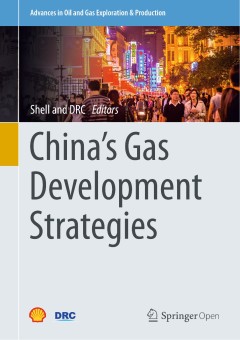
China's gas development strategies
This book is open access under a CC BY 4.0 license. This book examines how China can increase the share of natural gas in its energy system. China’s energy strategy has global ramifications and impact, and central to this strategy is the country’s transition from coal to gas. The book presents the culmination of a two-year collaboration between the Development Research Center of the State C…
- Edition
- -
- ISBN/ISSN
- 9783319597348
- Collation
- xlviii, 477p. : ill.
- Series Title
- -
- Call Number
- 553.285 CHI c
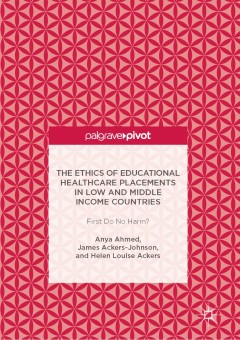
The ethics of educational healthcare placements in low and middle income coun…
This book examines the current state of elective placements of medical undergraduate students in developing countries and their impact on health care education at home. Drawing from a recent case study of volunteer deployment in Uganda, the authors provide an in-depth evaluation of the impacts on the students themselves and the learning outcomes associated with placements in low resource settin…
- Edition
- -
- ISBN/ISSN
- 9783319483634
- Collation
- xi, 158p. : ill.
- Series Title
- -
- Call Number
- 610.71 AHM e
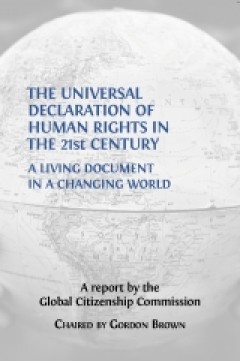
The Universal declaration of human rights in the 21st century
The Global Citizenship Commission was convened, under the leadership of former British Prime Minister Gordon Brown and the auspices of NYU’s Global Institute for Advanced Study, to re-examine the spirit and stirring words of The Universal Declaration of Human Rights. The result – this volume – offers a 21st-century commentary on the original document, furthering the work of human rights a…
- Edition
- -
- ISBN/ISSN
- 9781783742219
- Collation
- x, 136 p.;22 cm.
- Series Title
- Open Reports Series; Vol. 2
- Call Number
- 323 UNI u
 Computer Science, Information & General Works
Computer Science, Information & General Works  Philosophy & Psychology
Philosophy & Psychology  Religion
Religion  Social Sciences
Social Sciences  Language
Language  Pure Science
Pure Science  Applied Sciences
Applied Sciences  Art & Recreation
Art & Recreation  Literature
Literature  History & Geography
History & Geography